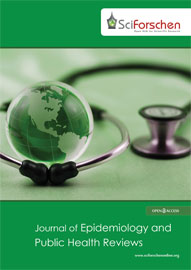
Assistant Professor
Division of Biostatistics
University of Minnesota
School of Public Health
USA
Education
- Postdoc, Biostatistics, University of Texas MD Anderson Cancer Center, September 2012 – August 2015.
- Ph.D., Statistics, Texas A&M University, September 2007 – December 2012.
- M. S., Biology, Texas A&M University, September 2004 – August 2007.
- B. S., Biology, Fudan University, China, September 2000 – June 2004.
Biography
Lin Zhang, PhD, is an Assistant Professor in Biostatistics Division at School of Public Health of University of Minnesota Twin Cities.
Dr. Zhang received her M.S. degree in Biology from Texas A&M University in 2007. After that, she decided to study statistics and obtained a PhD degree in Statistics from Texas A&M University in 2012 under the mentorship of Drs. BaniK. Mallick and VeeraBaladandayuthapani. Her doctoral dissertation was on application of Bayesian hierarchical models in genetic data analysis. Between2012 and 2015, Dr. Zhang worked as a postdoctoral researcher in the Department of Biostatistics at the University of Texas MD Anderson Cancer Center under the supervision of Drs. VeeraBaladandayuthapani and Jeffrey S. Morris. Her postdoctoral research was centered at developing Bayesian methodology for complex genomics studies of bladder cancer and multiple myeloma. In 2015, she joint the Biostatistics Division at School of Public Health of University of Minnesota Twin Cities as an Assistant Professor.
Her current research interest is primarily onthe development of novel methodology to solve important biological and biomedical problems involving high-dimensional and complex-structured data. Her methodological researchinvolves Bayesian hierarchical modeling in a broad range of statistical fields, including functional data analysis, spatial data analysis, variable selection,and graphical modeling, with an emphasis on applications to genomics and neuroimaging data.
Research Interest
Her current research interest is primarily onthe development of novel methodology to solve important biological and biomedical problems involving high-dimensional and complex-structured data. Her methodological researchinvolves Bayesian hierarchical modeling in a broad range of statistical fields, including functional data analysis, spatial data analysis, variable selection,and graphical modeling, with an emphasis on applications to genomics and neuroimaging data.
Professional Activities:
- August 2015 – present, Assistant Professor, Division of Biostatistics, University of Minnesota School of Public Health.
Publications
- L. Zhang, V. Baladandayuthapani, J.S. Morris, et al. (2015) Bayesian functional graphical regressions: Application to fMRI smoking cessation. In preparation.
- L. Zhang, D. Bandyopadhyay (2015) A multivariate skew-t analysis of periodontal data with nonrandom missingness. In preparation.
- L. Zhang, V. Baladandayuthapani, H. Zhu, K.A. Baggerly, T. Majewski, B.A. Czerniak, J.S. Morris (2015) Functional CAR models for large spatially correlated functional datasets. JASA Theory and Methods, accepted.
- L. Zhang, A. Sarkar, and B.K. Mallick (2015) Bayesian sparse covariance decomposition with a graphical structure. Statistics and Computing, in press. doi: 10.1007/s11222-014-9540-7.
- L. Zhang, J.S. Morris, J. Zhang, R. Orlowski, and V. Baladandayuthapani (2014) Bayesian joint selection of genes and pathways: application in multiple myeloma genomics. Cancer Informatics, 13(S2): 113-123.
- Zhang, V. Baladandayuthapani, B.K. Mallick, G.C. Manyam, P.A. Thompson, M.L. Bondy and K. Do (2014) Bayesian hierarchical structured variable selection with application to molecular inversion probe studies in breast cancer. Journal of the Royal Statistical Society: Series C (Applied Statistics), 63: 595–620.
- L. Zhang, and B.K. Mallick (2013) Inferring gene networks from discrete expression data. Biostatistics, 14(4): 708-722.
Presentations and Posters
- Functional CAR models for spatially correlated genomics data, U Spatial Lightening Talk, U Spatial Forum 2015, University of Minnesota, MN, November 2015.
- Functional CAR models for spatially correlated high-dimensional functional data. Poster, G70 conference, Duke University, Durham, NC.
- Bayesian hierarchical structured variable selection methods. Topic-contributed talk, Joint Statistical Meetings, Boston, MA, August 2014.
- Functional CAR models for spatially correlated high-dimensional functional data. Poster, Bayesian Biostatistics & Bioinformatics Conference, Houston, TX, February 2014.
- Bayesian hierarchical structured variable selection with application to MIP studies in breast cancer. Talk for the Section on Bayesian Statistical Science (SBSS) Student Paper Travel Award, Joint Statistical Meetings, San Diego, CA, July 2012.

